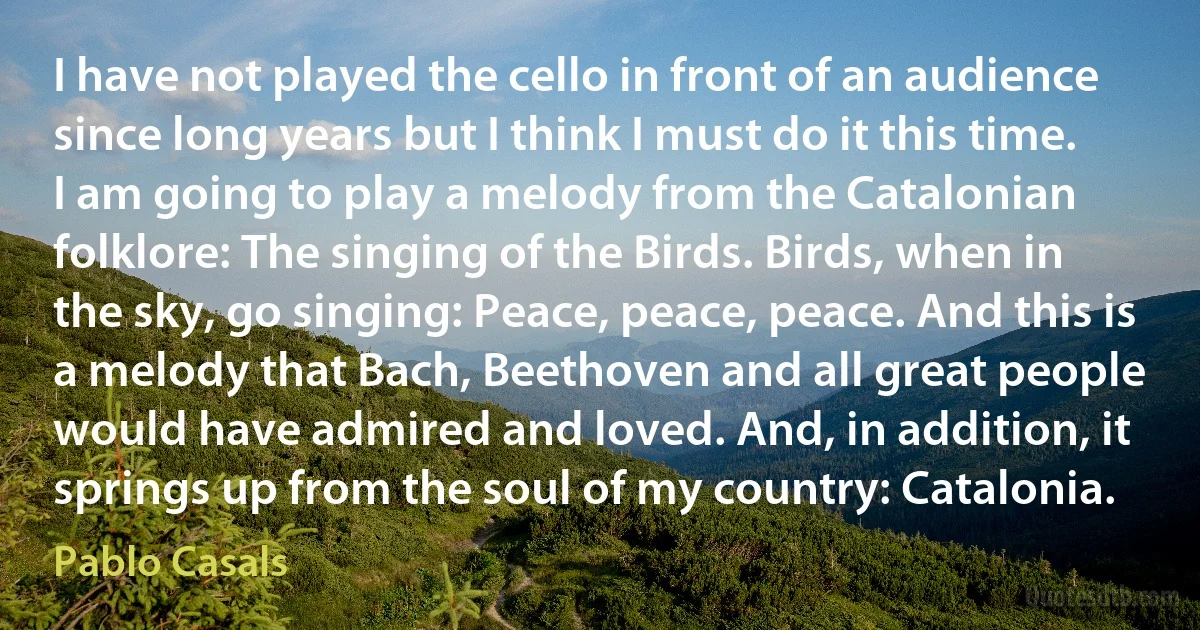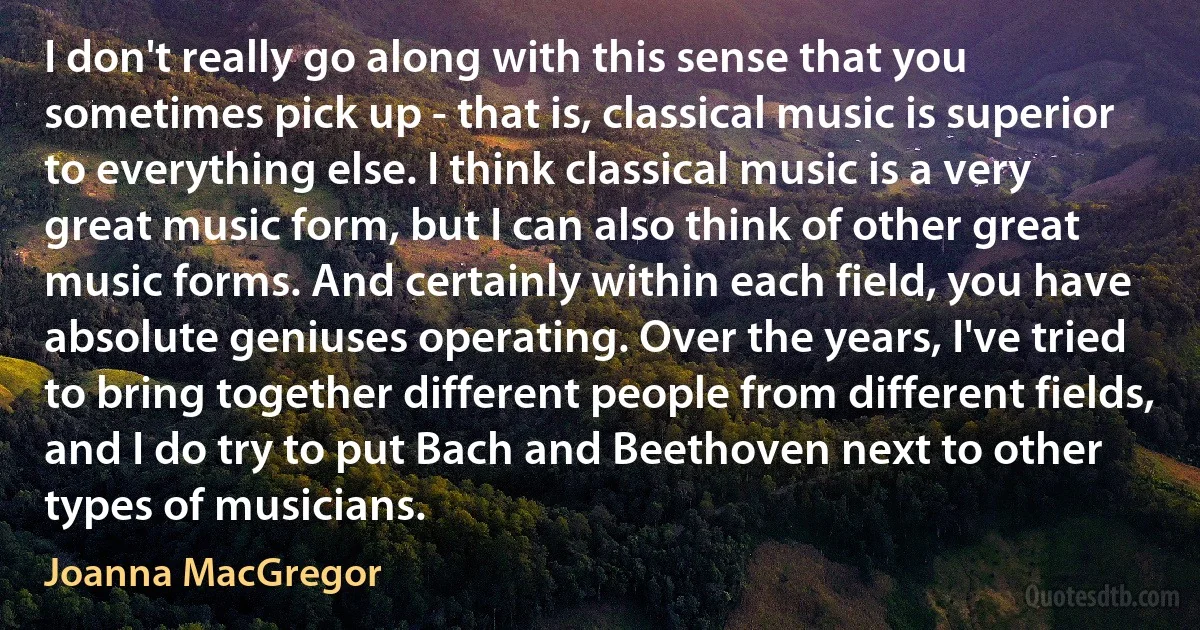Beethoven Quotes - page 3
There is a world of visual beauty open to the one willing to undergo the practice and striving necessary to the understanding of its language.
This world is a important as culturally as is the world of words or of music. My ideal is to form and to paint as Schubert sings his songs and as Beethoven creates his world in sounds. That is to say, creation of one's own inner world through the same human and artistic discipline.
An inner sensation can find external expression only through spiritual realization.

Hans Hofmann
You start to think, when you're younger, how important everything is and how things have to go right-your job, your career, your life, your choices, and all of that. Then, after a while, you start to realise that – I'm talking the big picture here – eventually you die, and eventually the sun burns out and the earth is gone, and eventually all the stars and all the planets in the entire universe go, disappear, and nothing is left at all. Nothing – Shakespeare and Beethoven and Michelangelo gone. And you think to yourself that there's a lot of noise and sound and fury – and where's it going? It's not going any place... Now, you can't actually live your life like that, because if you do you just sit there and – why do anything? Why get up in the morning and do anything? So I think it's the job of the artist to try and figure out why, given this terrible fact, you want to go on living.

Woody Allen
The general opinion appears to be that it is very funny to make yourself out as fast or as foolish as possible; though even worse than this is the painful orthodoxy of those individuals who claim Shakespeare for their favourite poet, Beethoven for their favourite composer, and Raphael for their favourite painter.

Aubrey Beardsley
He [Gilels] played in an easy, natural manner, with strong but unassuming musicianship. His technique was brilliant; years later Neuhaus, still astonished, was to recall Gilels's incredible octaves in Liszt's Spanish Rhapsody. Yet Gilels was never looked upon as a mere virtuoso. As a matter of fact, his programs did not often include music pour epater le bourgeois. He played a stedy diet of Beethoven (the Hammerklavier was a work that strongly engaged his last years), Schubert, Schumann, Chopin and Brahms. In many respects, the great virtuoso who put his authoritative stamp on whatever he played was, at the same time, a thinking man's pianist.

Emil Gilels
The point of recapitulation in the first movement of Beethoven's Ninth Symphony unleashes one of the most horrifyingly violent episodes in the history of music.... The point is not to hold up Beethoven as exceptionally monstrous. The Ninth Symphony is probably our most compelling articulation in music of the contradictory impulses that have organized patriarchal culture since the Enlightenment. Moreover, within the parameters of his own musical compositions, he may be heard as enacting a critique of narrative obligations that is...devestating.

Susan McClary
The fundamental difference between composing for a nobleman or a personal patron in general and working for the anonymous concert public is that the commissioned work is usually intended for a single performance, whereas the concert piece is written for as many repeats as possible. That explains not only the greater degree of care with which such a work is often composed but also the more exacting way in which the composer presents it. Now that it is possible to create works which would not be consigned to oblivion so quickly as commissioned works, he 76 sets out to create ‘immortal' works. Haydn already composes much more cautiously and slowly than his predecessors. But even he writes over a hundred symphonies; Mozart writes only half as many and Beethoven only nine.

Arnold Hauser
It was the normal working of the antisuccess mechanism. In our overcrowded modern world a hit record, a best-selling book, a successful film, can reach more people in a week than Shakespeare or Beethoven reached in a whole lifetime. And so fame has become the most romantic, the most desirable of all commodities, the dream for which a modern Faust might sell his soul to the Devil. Once attained, fame is never as easy to hold on to as some people believe. The people who achieve fame by some accident of fashion are usually forgotten within a week; the ones who remain on top have to work to stay there. But few people understand this. The result is that anyone who achieves sudden notoriety arouses envy and hostility. The greater the success, the greater the reaction.

Colin Wilson
I have absolutely no difficulty in coming out and saying Bach and Beethoven are great composers. You must school young people into great classical music, but you must also allow them to hear other music as well. At one point classical music colonised the high ground. Now we're reaping the backlash for that.

Joanna MacGregor
I know I get up people's noses," "Everyone wants to pigeonhole you. Early on in my career I somehow got labelled 'Bach, John Cage and a bit of jazz'. But the fact that I love to play Beethoven, too, really infuriates people. It doesn't fit. They can't make sense of it. The received wisdom is that you can't possibly do all these things without it sounding terrible or crass or just plain wrong.

Joanna MacGregor
I decided then and there that the symphonies of Beethoven and Brahms were the only music for me, not the music of this crazy Russian. ... My one desire was to flee that room and find a quiet corner in which to rest my aching head. Then Diaghilev turned to me and with a smile said, "This is a masterpiece, Monteux, which will completely revolutionize music and make you famous, because you are going to conduct it."

Pierre Monteux



